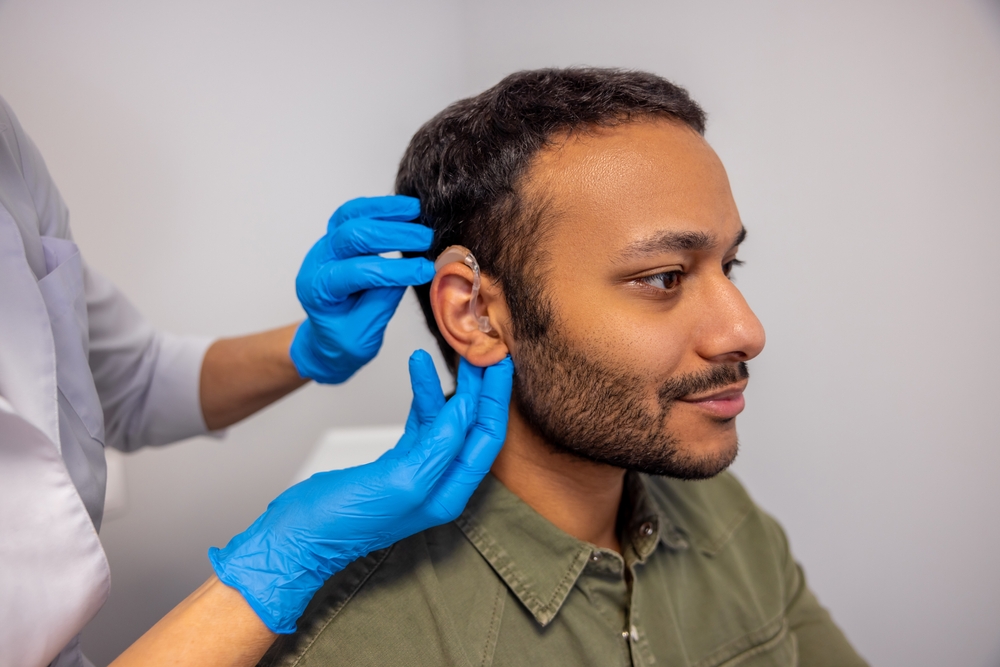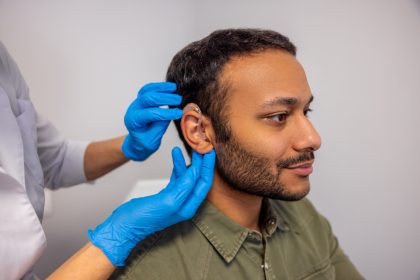Age-related hearing loss affects millions worldwide, yet many dismiss it as an inevitable inconvenience rather than a serious health concern. This gradual decline, known as presbycusis, impacts not just hearing but overall quality of life. Understanding its significance helps explain why regular hearing checks become crucial as we age.
Early detection matters
Many people delay seeking help for hearing issues, often waiting years before getting their ears checked. This hesitation can lead to complications that become increasingly difficult to address. Regular hearing evaluations serve as preventive care, catching potential problems before they worsen significantly.
Early intervention brings multiple benefits. Communication with loved ones remains clear and effective, reducing frustration and misunderstandings. Social connections stay strong when hearing issues don’t create barriers. Perhaps most importantly, addressing hearing loss early helps maintain cognitive function, as untreated hearing problems may contribute to mental decline.
The emotional toll
Untreated hearing loss creates ripples throughout daily life. Simple conversations become challenging exercises in concentration. Social gatherings transform from enjoyable events into sources of anxiety. Many individuals gradually withdraw from activities they once enjoyed, leading to isolation and potential depression.
These emotional challenges extend beyond the individual. Family members and friends may struggle to communicate effectively, leading to strained relationships. The resulting frustration affects both parties, often creating distance in previously close connections. Getting hearing checked helps prevent these relationship difficulties from developing.
Modern solutions
Today’s hearing care offers sophisticated solutions far beyond the bulky devices of the past. Modern hearing aids provide discrete, effective assistance with features like smartphone connectivity and automatic environmental adjustments. These technological advances make addressing hearing loss more comfortable and convenient than ever before.
Assistive listening devices complement hearing aids by enhancing sound clarity in specific situations. From television watching to group conversations, these tools help maintain engagement in daily activities. For severe cases, advanced options like cochlear implants can restore significant hearing capability.
Protecting your hearing
Prevention plays a crucial role in maintaining hearing health. Limiting exposure to loud noises helps preserve hearing function. This includes being mindful of volume levels when using headphones or attending noisy events. Similarly, maintaining good overall health through proper nutrition and exercise supports ear health by ensuring good blood flow to auditory systems.
Regular medical attention to ear infections prevents complications that could affect hearing. Additionally, discussing medication side effects with healthcare providers helps avoid treatments that might impact auditory function. These preventive measures complement regular hearing checks in maintaining long-term ear health.
Recognizing the signs
Several indicators suggest the need for a hearing evaluation. Frequently asking others to repeat themselves or struggling to follow conversations in noisy environments often signals hearing decline. Turning up television volume higher than others prefer or feeling unusually tired after social interactions due to intense listening effort also warrant attention.
After age 60, annual hearing tests become increasingly important, even without obvious symptoms. Regular evaluations help track subtle changes that might otherwise go unnoticed. Family history of hearing loss makes these checkups particularly crucial, as genetic factors can influence hearing decline.
Overcoming stigma
Despite advances in treatment options, many resist getting their hearing checked due to perceived stigma. This hesitation often stems from outdated assumptions about hearing aids and aging. Modern hearing solutions offer discrete, effective options that enhance rather than detract from quality of life.
Understanding that hearing loss affects people of all ages and backgrounds helps normalize seeking help. The real impact on life quality comes not from addressing hearing loss but from leaving it untreated. Taking charge of hearing health demonstrates self-care and wisdom rather than weakness.
Looking forward
Addressing age-related hearing loss through regular checkups represents an investment in future well-being. Early detection and treatment help maintain social connections, cognitive function, and overall life quality. Modern technology provides increasingly sophisticated solutions, making hearing assistance more effective and comfortable than ever.
Don’t let concerns about aging or stigma prevent you from seeking proper hearing care. Taking action at the first signs of hearing change offers the best opportunity for effective treatment. Your hearing health directly impacts your ability to engage fully with life – protect it through regular professional evaluation and appropriate intervention when needed.
This story was created using AI technology.













